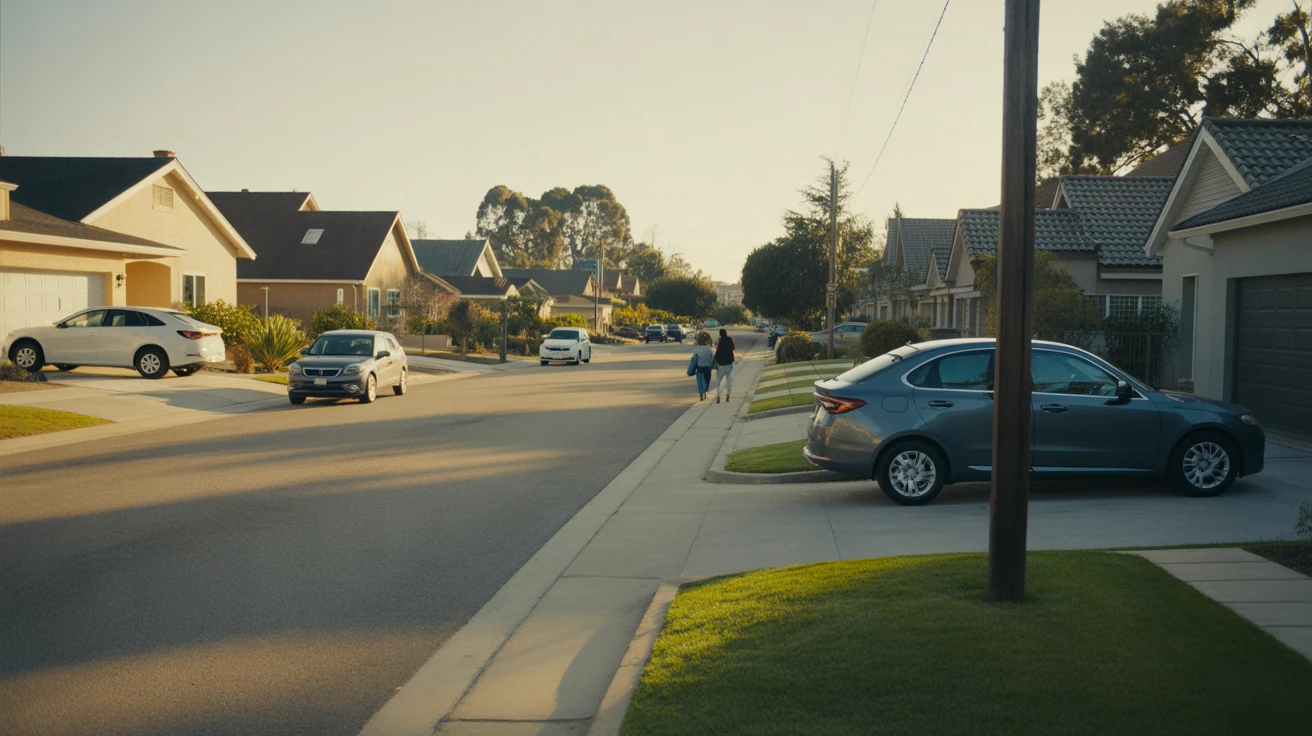
Budgeting Smarter in Vista
Planning your monthly expenses in a new city can feel overwhelming, especially if you’re not sure what costs to expect. To help new movers and current residents estimate their monthly budget based on different lifestyles, we’ve put together some real-world examples of what monthly budgets in Vista can look like.
In Vista, housing and electricity often make up more than 55% of a household’s total monthly budget. Depending on your specific situation, your monthly spending in Vista might look very different. Here are a few common scenarios to give you a clearer picture.
What Real Budgets Look Like in Vista
Let’s start by walking through the monthly budget of Jasmine, a 27-year-old single renter working remotely and earning $3,000 per month in gross income (before taxes). Here’s how Jasmine’s monthly costs in Vista typically break down:
- Rent for a studio apartment: $1,450
- Utilities (electricity, water, internet): $200
- Groceries and dining out: $400
- Transportation (car payment, gas, insurance): $350
- Miscellaneous costs (subscriptions, personal care): $200
- Savings: $400
Jasmine’s total monthly spending comes to around $3,000. With over 48% going to rent alone, she has to be mindful about other costs to stay within her budget.
For a bigger picture, here’s how monthly expenses compare for a few different households in Vista:1
| Expense | Jasmine (Single renter) | Sam & Elena (Dual-income renters) | The Ortiz Family (Homeowners) |
|---|---|---|---|
| Gross Monthly Income | $3,000 | $7,000 | $9,500 |
| Rent/Mortgage | $1,450 | $2,200 | $2,800 |
| Utilities | $200 | $350 | $450 |
| Food | $400 | $800 | $1,200 |
| Transportation | $350 | $500 | $800 |
| HOA/Fees | $0 | $200 | $350 |
| Miscellaneous | $200 | $450 | $600 |
| Savings | $400 | $1,000 | $1,500 |
| Total | $3,000 | $5,500 | $7,700 |
1. These estimates reflect common lifestyle costs in Vista, CA as of 2025. Individual budgets will vary.
Biggest Cost Drivers in Vista
As you can see, housing makes up the biggest portion of most Vista budgets, whether renting or owning. Rent prices in Vista have been steadily rising, with the average 1-bedroom now going for over $1,800 per month.
Utilities are another significant cost, especially in the summer when many homes are running air conditioning. Seasonal spikes in electricity usage can easily add $100+ to a Vista resident’s monthly bill compared to milder months.
For homeowners, HOA fees are also a substantial line item, often exceeding $300 per month. And for those commuting to work, transportation costs like gas, car payments, and insurance premiums can quickly add up in Vista traffic.
Tips to Stretch Your Budget Further
While living in Vista isn’t cheap, there are ways to keep expenses under control with smart planning. Shopping at discount grocery stores like Aldi or Grocery Outlet can help trim your monthly food budget. Taking advantage of SDG&E’s off-peak pricing can also reduce your electricity costs.
🏆 Pro Tip: Check for energy-efficient appliance rebates and AC tune-up offers from SDG&E to offset summer cooling costs in Vista.
Choosing to live near the Sprinter light rail or a bus line can also help you save on transportation. A monthly pass for public transit in Vista costs $72 – much less than filling up a gas tank multiple times a month!
FAQs About Monthly Budgets in Vista
Can you live in Vista on $3,000 per month?
Yes, it’s possible for a single person to live on $3,000 per month in Vista, but it will be tight. Expect to pay at least $1,400 for a studio or 1-bedroom apartment, leaving around $1,600 for all other expenses.
What’s a realistic rent budget for Vista?
If you’re looking to rent in Vista, plan to budget at least $1,800 for a 1-bedroom or $2,200+ for a 2-bedroom apartment as of 2025. Prices are higher in neighborhoods like Shadowridge and Melrose.
What’s a good overall budget for $4,000 per month in Vista?
With a $4,000 monthly budget in Vista, you can likely afford a 1-bedroom apartment ($1,800), cover utilities, food, and transportation ($1,200), and still have some room for savings or discretionary spending ($1,000). However, larger households will find this budget more challenging.
Planning Your Vista Budget
Moving to a new city is always an adjustment, and getting a handle on your new cost of living is a big part of that. Hopefully, these real budget examples give you a clearer sense of what to expect when planning your monthly expenses in Vista.
Remember, your specific costs will depend a lot on your lifestyle, neighborhood, and spending habits. Use these figures as a starting point, then track your own expenses to see how you compare. With some smart strategizing, you can find a balanced budget that works for your new life in Vista!
